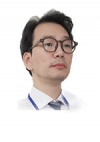US and Japan encourage development of generic drugs…Japan plans up to 80% of prescription with generic drugs.
“A large part of profits from generic drugs have been reinvested in R&D”
![[Photo courtesy of Korea Pharmaceutical and Bio-Pharma Manufacturers’ Association]](/news/photo/202211/132485_118866_739.jpg)
Generic drugs have been continuously undervalued as highlighted in this year’s parliamentary audit where the need to reduce health insurance finances through cutting the price of generic drugs has been raised, and a notice to mark the name of generic drugs as “copy drugs” published.
However, within the pharmaceutical industry, a voice that proper valuation of generic drugs is urgent is arising.
◆ Generic drugs, “A trigger for saving the health insurance financing”
In the parliamentary audit of the Ministry of Health and Welfare, Rep. Choi Jae-hyung of the People Power Party argued for cutting the price of generic drugs to support the development of new drugs. This means the price of generic drugs should be cut to support the fund for new drug development.
The pharmaceutical industry showed a concern about Rep. Choi’s such argument.
The pharmaceutical industry pointed out, “Generic drugs account for a significant portion in the profit model of the pharmaceutical industry in Korea, and we have a structure where the proceeds from generic drugs are reinvested in R&D. If we see Rep Choi’s argument from the viewpoint of industry, it is an inconsistent logic that the state should reduce the private sector’s R&D fund and instead expand the state R&D fund.”
In fact, generic drugs play a role of relieving the burden of drug prices and saving the health insurance financing.
According to the industry, when a generic drug is launched in the market, the price of the original drug is adjusted to 70% of the original price, and the price of the corresponding generic drug to 59.55% of the original in a year immediately following the launch of the generic drug.
Then, in the following 1 year, the prices of both versions of the drug are reduced to 55.55% of the original price. The launch of a generic drug alone can lead to the lower prices of drugs and bring an effect of over 30% saving in the health insurance financing.
◆ Developed countries raise the proportion of generic drugs
Due to the effect of financial savings by generic drugs, several countries promote the replacement of original drugs with generic drugs. According to a report recently published by the US Association for Accessible Medicines (AAM), it was estimated that the United States has saved more than 2.6 trillion dollars (approximately 3,681.6 trillion won) by using generic drugs and biosimilars over the past 10 years.
It was estimated that 373 billion dollars (528.2 trillion won) were saved only for the last year.
“The report stated, “Numerous patients who were prescribed drugs saved $5, $50, or $500 per person by using generic drugs. Generic drugs or biosimilars can save many lives because they are not only safe and effective, but also inexpensive.”
The US announced the Drug Competition Action Plan in 2017 to increase the efficiency of approval and review for generic drugs, disclose the list of drugs with expired patents, and promote the development of generic drugs.
Japan is also pushing to expand the adoption of generic drugs for the purpose of curbing healthcare expenses. The Japanese government plans to increase the proportion of prescription of generic drugs to more than 80% by 2023.
◆ Generic drugs to raise K-Pharm
Another advantage of generic drugs is that they can be a cash cow for the domestic pharmaceutical and biotech industry. If a company succeeds in developing a new global blockbuster, it can create enormous high added value worth tens of trillions of won a year (e.g. Humira's sales of 32.06 billion dollars in 2021). However, new drug development requires investment of multiple trillion won over 10 years.
Even so, this does not have a high success rate. According to the US Biotechnology Innovation Organisation, the success rate from phase 1 clinical trial to new drug approval between 2012 and 2020 was only 7.9%.
In the face of such high barriers to new drug development, domestic pharmaceutical and biotech companies are challenging to the development of global blockbuster new drugs by establishing a virtuous cycle of an ecosystem where profits from sales of generic drugs are invested in R&D.
Israel's Teva Pharmaceuticals, which is considered the world's No. 1 generic drug company, has also been reborn as a new drug developer by conducting aggressive M&A and R&D with the money earned through selling generic drugs as cash cows.
Generic drugs also have enjoyed success in overseas exports.
Samchundang Pharm signed an export contract for disposable glaucoma treatment with OmniVision in Europe in February. With the recent increase in demand for glaucoma treatment in the European market, annual sales are expected to reach 20 billion won.
Huons also signed an export contract with Canada's Formative Pharma in May for three types of local anesthetics. At the time of the contract, Lee Mangubat, CEO of Formative Pharma, anticipated, “Huons' injection with excellent quality will show outstanding competitiveness in the Canadian generic injection market.”
Daewoong Pharmaceutical’s antibiotic meropenem was exported to the US for the first time as a domestic generic drug.
In addition, Samjin Pharmaceutical's antithrombotic drug 'Platless' is sold in China, the Philippines and Indonesia, and Chong Kun Dang Group's immunosuppressant 'Tacrobell' is sold in the United Arab Emirates, Qatar and Saudi Arabia. JW Pharmaceutical's antibiotic imipenem also has been exported to China, Japan and Brazil.
[WIKI KOREA=Cho Pil Hyun, Staff Reporter]
chop23@wikileaks-kr.org


